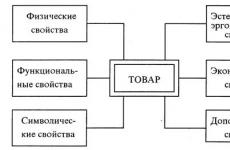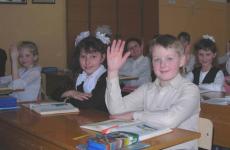Announcements about the competition of drawings in English. Week of the English language methodological development in English on the topic
The competition exceeded all expectations: the emotions and creativity of the participants are off the charts, the voting and commenting mice have been wiped to dust, and the jury is faced with an unbearably difficult choice, because almost all works are worthy of laudatory words.
To alleviate the difficult fate of determining the winners, it was decided to increase the prize fund to 10 prizes, because. there were a lot of good jobs.
And so, the best and most original in terms of idea, implementation and effort are (according to the website portal team):
In general, this competition turned out to be very interesting: what is worth, for example, the pleasure of viewing emotional photos every day. Especially when their number is growing literally every hour.
The iloveenglish .ru site administration thanks all the participants of the contest, as well as everyone who supported and voted. And, of course, those who helped create the original photo. And we, in turn, do not say to you: "Goodbye and relax." On the contrary: “Until the new competition and get ready!”
Photo contest "I love English"
We all know very well that you can’t command the heart. Therefore, we can love anyone and anything: a man, a woman, children, parents, a pet, home, ice cream, knitting, fishing, sunsets ... everyone will continue the list. But, as you may have guessed, it is not by chance that like-minded people have gathered on this site. And no one will stop us from adequately celebrating February 14 as Valentine's Day ... in English!
How to make this holiday memorable? And we have already thought of everything: confess your love, fall in love with English, and he will definitely reciprocate. Actually, this is the essence of the next long-awaited contest with tempting prizes.
What should be done
Everything is easier than ever:
1. Come up with a story for the photo (tips below) under the mottoI
?
english
;
2. Take a photo with your creative in any way (on your own, with the help of a friend/relative/stranger on the street);
3. Upload a photo to our website (don't forget to register if you haven't already done so. Country/city/age items will be required in the competition) andsign your photo (let it be a recognition of the English language).
As soon as the 3rd point is passed, you are a participant in the contest! There will be many winners. The four winners will be determined by the strict but fair administration of the site. Another trio of lucky winners will be determined by the number of "likes" from social networks.
Organization of the week foreign language at school
MKOU "Secondary School No. 8 named after A.V. Gryaznov"
Performed by Cherkasova Tatyana Alekseevna
foreign language teacher
Belykh Elena Sergeevna
teacher of English language
2015
annotation
To enhance the creative abilities of students, it is necessary to improve the types and forms learning activities and extracurricular activities(subject weeks, competitions, quizzes, games, KVN, holidays, hours of fun competitions). This will allow you to consolidate the material covered at the level of figurative thinking.
This methodological development is devoted to the problems of improving skills oral speech, increasing interest in teaching foreign languages at school. It contains a script for holding a foreign language week at school.
Introduction
The Foreign Language Week is dedicated to the 450th anniversary of the classic of English drama, a connoisseur of history and researcher of the human soul, poignant lyricist and wise philosopher William Shakespeare. Created more than three centuries ago, Shakespeare's works still live, excite and shake the imagination of the audience. The best theaters of the world and outstanding actors still consider it their test and happiness to stage and play a Shakespearean performance. William Shakespeare wrote 10 tragedies, but the most famous is The Tragedy of Romeo and Juliet. “There is no sadder story in the world than the story of Romeo and Juliet »
Extracurricular work in a foreign language is necessary for the development and support e neighing interest in learning a foreign language at school, to develop the creative abilities of students. The principles of extracurricular work in a foreign language are the starting points that determine the requirements for its content, methods and organizational forms. They meet the goals and objectives of all extracurricular work in a foreign language at school and illustrate the essence of pedagogical activity teacher - organizer of extracurricular activities.
The main organizational principles of extracurricular work in foreign languages are the principles of voluntariness and mass character, the principle of taking into account and developing the individual abilities and interests of students, the principle of connecting extracurricular work with lessons.
It is advisable to single out such a form of extracurricular work as the Foreign Language Week at school. This form, by its nature, is mass, as it provides for the participation of a wide contingent of students in it. And in its structure it is complex, as it includes a complex of events of different meaning and form that take place in a certain period of time and are aimed at implementing the tasks of an integrated approach to educating students.
A foreign language week at school as a complex form should assist in the purposeful organization and systematization of all extracurricular activities at school. A week of a foreign language is held in a certain period of the academic year according to a pre-compiled program that determines the goals, content and form of any of the components. The topics of events within the framework of the Week should be interesting, informative, accessible, related to educational material and meet the age characteristics of students, their level of language training.
The week of a foreign language held at the school gives the children the opportunity to put their knowledge into practice, regardless of their level, and gives them the opportunity to believe in themselves in learning a foreign language.
Goals the Week:
- increase motivation to learn foreign languages,
- to promote practical knowledge of speech activity,
- increase the active language stock of students,
- to stimulate their intellectual and linguistic activity in general,
- to expand the general horizons of schoolchildren,
- raise their cultural level,
- to develop the creative abilities of students of all parallels, regardless of their level of knowledge of a foreign language, offering them tasks and activities of a feasible level.
During the week of a foreign language, many different events are held. The relevance of the event lies in the fact that the week contributes to the expansion and enrichment of the acquired educational, language and speech experience in the course of mastering foreign languages.
A positive motivation of the conditions and the possibility of applying knowledge and skills is created, which ensures a stable positive attitude towards learning. Such qualities as activity, purposefulness, collectivism are developed.
In the course of preparation, students learn couplets of some choral songs during phonetic exercises, get acquainted with the vocabulary necessary to understand the content of evenings, performances, get acquainted with the literature necessary to prepare for quizzes, olympiads, competitions. By participating in various competitions, literary and musical evenings, conferences, schoolchildren demonstrate their knowledge of a foreign language. In the course of the week, cognitive, developing material, a variety of techniques, forms, methods are used. Responsibility of students for voluntarily undertaken assignments is developed. The mass coverage of students with various events increases interest in learning English, there is a motivation for practical knowledge different types speech activity, the active stock of students increases, pronunciation improves, intellectual and linguistic activity is stimulated, which leads to a general increase in the cultural level
Stages of the week of English at school
The process of preparing and holding the Week of a foreign language at school takes place in three stages.
Stage I (preparatory): begins with the preparation of the program of the Week.
- The nature and content of the event, the time and place of its holding are discussed with the students and the school administration.
- Responsibilities are distributed among teachers, taking into account the preparation of certain events.
- A program of events is drawn up for all days of the week with an exact indication of the dates and venue.
- Language material is being prepared for competitions, olympiads, relay races and other events.
- An information corner is being set up in the school lobby.
- Thematic design of offices, corridors where events are held is being thought out.
- The game program is being drawn up.
- Classes produce a wall newspaper.
- The composition of the jury is discussed, as well as the question of awarding, awarding diplomas to the best teams, winning participants and individual active participants.
From how it will be held preparatory work depends on the success of English Language Week. Directly preparing students for performances is carried out by foreign language teachers, working individually with each student or with groups of students. During rehearsals, students improve their pronunciation, oral speech skills, learn how to behave on stage, etc.
Stage II - holding a week of a foreign language.
A prerequisite for holding the Week is the creation of an atmosphere of festivity and ease. Students should feel satisfaction and joy from their participation in the holiday. The week begins on the line with a conversation "The meaning of foreign languages at school." The teacher announces the opening of the week of foreign languages at the school and introduces the plan of the week's activities.
List of exemplary events of the Week of Foreign Languages at school:
Exhibition of wall newspapers
Competition of drawings and essays
Presentations about the countries of the language being studied and about the great people of these countries
game relay
Open Lessons
Literary Reading Day
Quiz "Erudite"
Quiz "English-speaking countries and their capitals"
Competition for the best translation, solving crossword puzzles
Encounter with fairy tales
Day of Music and Songs
Competition for the best translation
alphabet holiday
Listening to excerpts from the works of English, American writers, conversations about their life and work.
Day of writing to a friend in another country.
Stage III: dedicated to results.
Depending on the plan, the students who won prizes are awarded certificates and prizes either at the reporting concert or at the line.
Duty teachers issue a newsletter and report on the results of the Week, what successes have been achieved by its participants, which of the students has been the most noted.
Plan for the Week of a foreign language.
1 day | School decoration. Drawing competition on the topic “My favorite book” grades 2-4. Drawing competition on the theme “Romeo and Juliet” grades 5-11. Issue of wall newspapers grades 5-9 Presentation on the theme "London". 5-9 grades |
2 day | Presentation on "William Shakespeare" and "Romeo and Juliet" grades 5-11 |
3 day | Holiday English alphabet 2 classes |
4day | |
Day 5 | Final concert. Rewarding. 2-11 grades |
1 day
Issue of wall newspapers.
The issue of wall newspapers is dedicated to W. Shakespeare and his famous tragedy Romeo and Juliet. This event is one of the forms of extracurricular work in a foreign language. A meaningful, aesthetically designed wall newspaper increases students' interest in the subject. With a certain focus, the wall newspaper contributes to solving the problems of educative education. The teacher sets a specific task for the students and achieves its implementation with the help of those language tools that they own. It helps to plan the content and design of the issue, distribute the roles of students in the preparation of materials, pick up vocabulary, control the spelling and grammatical correctness of articles and notes, the logic of their location, possible options decoration, etc.
The educational effectiveness of a wall newspaper is largely determined by the content of its materials, their ideological orientation, connection with life, as well as ways of presenting information.
"London". Presentation.
Presentation about the capital of Great Britain. This development is aimed at expanding the linguistic horizons of students, contributes to the formation of a culture of communication, the acquisition by students of knowledge about the culture of the country of the language being studied, the sights of the capital of Britain (London), partial understanding of the mentality of another people, knowledge of the political structure of the country of the language being studied.
2 day
Presentation on the topic "U. Shakespeare" and "Romeo and Juliet" grades 5-11
GOALS :
1. introduce students to the Renaissance; introduce W. Shakespeare into the world;
help to understand the meaning of the tragedy "Romeo and Juliet";
2. develop the skill of expressive reading; learn to compare works
different types of art; improve your dramatic analysis skills
works;
3. broaden the horizons of students; develop aesthetic sensitivity;
generate interest in the work of Shakespeare.
Tasks :
1. Educational - improving listening, speaking, grammar skills, increasing motivation to learn English, expanding the horizons of students;
2. Educational - the formation of such personality traits as a sense of tolerance for the culture of English-speaking countries, for comrades, the ability to work in a team, listen, analyze and accept the opinion of another person;
3. Developing - the development of cognitive abilities, memory attention.
Venue:English room
Technical support: projector, computer, handout.
3 day
Holiday-competition of the English alphabet for grade 2
Target: generalize students' knowledge on the topic "English alphabet"
Tasks:
Educational: expanding the horizons of students
Educational :
1) development of creative abilities of students;
2) formation of readiness for communication, motivation for learning English.
Educational:
1) development of interest in English reading;
2) fostering respect for the culture of other peoples.
Communicative: expansion of vocabulary on the topics "Colors", "Family", "School", "Animals".
Equipment : multimedia projector, tape recorder, cards with letters of the English alphabet, drawings of animals.
Equipment : UMK "English in focus-2", N. Bykova, M. Pospelova,
D. Dooley, W. Evans, Enlightenment, 2010
During the classes
HELLO CHILDREN. HOW ARE YOU? WE ARE GLAD TO SEE YOU TODAY! SIT DOWN, PLEASE.
LET'S START OUR LESSON.
The teacher greets the children and tells them that today they have a holiday lesson where they will show what they have learned in English lessons. This lesson will be held in the form of a competition between classes. Jury presentation.
The holiday begins with the song "Alphabet"
Please, stand up and let's sing the Alphabet
1 competition. "Name the Letter"
Each team names the displayed letter and receives one point for the correct answer.
You showed good knowledge in the game of bees and mice, and I want to offer you some more interesting contests.
2 competition. "Game" Chamomile
On the table - 4 daisies with large and small letters.
Each participant must choose the correct pair of letters and name it. One point for a correctly chosen letter and one point for a correctly named one.
3 competition. "Guess the word"
Each team receives word cards
The task is to spell the word for the opponents (one point). They must name the word for which they receive one point.
Words: fish, bed, zip, egg, dog, ant, cat, box.
4 competition. "Articles"
And now the competition - articles. What is this "cunning" word?
What articles do you know? And when do we use the article a | an? (children's answers)
Now look at the screen and think about which article to use in each case?
Words are written on the board in columns for each team.
The task is to name the correct article a/an. The student receives one point for a correct answer.
Words: egg, tree, horse, umbrella, box, mouse, rabbit, ant, orange, nest, apple, window.
Our competitions are over, and the jury can sum up the results, but our holiday continues. Children from each class prepared verses-riddles. Let's listen and try to guess.
5 competition. "Poems-riddles".
Each class prepared poems in advance on the topics: Animals, Colors, School, Family.
Task - listen to the poem and insert right word in English. Each team gets 5 points.
Bear clumsy walks barely
Teddy bear, teddy bear
In English - bear.
Red, red miracle phlox.
Red fox - fox.
Grandfather robs the grass with a rake
He wants to eat our rabbit -rabbit.
Loves our bulldog hot-dog
Dog there, dog here
That's what the dog's name is.
Jumped out of the garden right on the threshold
Green beauty, frog.
So funny and smart
Monkeys -monkey.
I'll ask you a difficult question:
What was the name of the horse? -horse.
Oh, drown! Is that right?
Call the duckling ducking.
My cat ate an omelet yesterday
He is a thief - cat.
English every day
We call the pen pen.
I see a lot of hands in the class!
Book - in English -book.
Sat at the desk, a crack is heard,
Desk in English - desk
I learn English words
I only take a run.
A briefcase, I know, is a bag,
And the bag is also a bag.
A dashing cowboy galloped.
Boy in English -boy.
A flower bloomed on the window
The girl watered it.
Hush, children, do not shout:
An English teacher enters the class.
Do not be lazy, but repeat:
Family otherwise family.
She dreams of being an actress.
My sister, my sister.
My brother broke a vase today
My brother is a baby
My brother is brother.
A friend came to me for lunch.
Friend in English
Just friend.
I started learning colors.
Color in English-colour.
I have no doubts:
The red color is of course-red.
Licking, the cat ate
The yolk is yellow. Yellow-yellow.
I'm drowning! I'm going to the bottom!
The color blue is, of course, blue.
6. Song “Rainbow” “A rainbow”.
Guys, where in nature can you meet 7 colors at once? (rainbow)
Let's sing the song "A rainbow".
Musical pause.
(On the board are cards with flowers)
Children sing the song "Rainbow" to the soundtrack
red and yellow and pink and green,
purple and orange and blue.
I can sing a rainbow
Sing a rainbow,
Sing a rainbow too.
Listen with your eyes
Listen with your eyes
And sing everything you see.
You can sing a rainbow.
Sing a rainbow.
Sing along with me…
7 Poem
Guys, you did a great job today and showed good knowledge. We have prepared a riddle for you. Help us tell it.
Poem about animals
Children, looking at the pictures, help to tell the poem by naming the animals in English.
At the monkey - a monkey
There was a girlfriend - a frog - a frog,
There was also a friend - a cock - a cockerel.
There were also:
A rabbit
A bear
A black kitten- black kitten,
A goat.
They lived in the forest - in the wood
And they were so good - very good.
And near the lake
Lived big snake- a big snake
She was hungry
And always angry - and always was angry.
The snake wanted to eat them–to eat them all
But she had to crawl away - to crawl.
And now for the jury.
The results are summed up, the jury announces the winners.
Our holiday has come to an end.
Day 4
Quiz "W. Shakespeare" grades 5-11
Day 5
Final concert of the foreign language week
Conclusion.
As practice shows, weeks of English reach high results. The effectiveness of their implementation in the system can be characterized by the presence of such characteristics as:
1. Informativeness and content, which contributed to the implementation of practical and general educational goals for extracurricular activities;
2. Communicative orientation: all types of extracurricular activities ensured the use of a foreign language as a means of obtaining and transmitting information in typical natural situations of communication;
3. Situation: the vast majority of types of extracurricular work included a "set of situations" that were the subject background and an incentive for purposeful linguistic actions;
4. Orientation of tasks to increase the language activity of students;
5. The emotionality of the forms and methods of implementation, which helps to increase the interest of students in foreign language activities.
The experience of holding a foreign language week at school shows that the general relaxed psychologically prepared atmosphere at school contributes to the manifestation of the individual capabilities of all children with different levels of learning. The events of the week contribute to the expansion and enrichment of the acquired educational, language and speech experience in the course of mastering a foreign language, increase the prestige of learning a foreign language.
Author: Ilyina Alina Yurievna, English teacher.
Organization: MBOU SOSH 88 with cadet classes
Location: Barnaul, Altai Territory The scenario is intended for English teachers in primary school, designed for children in grades 3-4. During the event, children will repeat and consolidate knowledge on previously studied material.
Goals:
- development of interest in the subject of English;
- verification of practical skills and abilities on previously studied material;
- development of creative activity of students;
- developing students' communication skills when working together.
2 teams take part in the event.
Equipment: handouts, cards, projector, computer, felt-tip pens and paper for a creative competition.
During the classes.
1 competition. Captains competition. Who are you? (Who you are?)The students name their team and choose a captain. There are several names to choose from: Tigers (Tigers), Crocodiles (Crocodiles), Cats (Cats), Dolphins (Dolphins), Sharks (Sharks), Bears (Bears), Foxes (Foxes). A card with questions is also issued to help tell about the team:
The captains present their teams by answering questions from the teacher.
For example:
Teacher: Who are you? (Who you are?)
Captain: We are Foxes. (We are Foxes)
Teacher: Where do you live? (Where do you live?)
Captain: We live in the forest. (We live in the forest)
Teacher: What color are you? (What color are you?)
Captain: We are red. (We are redheads).
In the first competition, literacy and pronunciation are evaluated, the best team receives a point.
2 Competition. flowers. How do you spell it? (Flowers. How is it spelled?)
Students are shown cards (or on the screen) with the name and image of a flower. The facilitator reads the word, explains what it means. Participants need to spell it out (to spell).
List of words: tulip (tulip), sunflower (sunflower), orchid (orchid), bluebell (bell), poppy (poppy), snowdrop (snowdrop), rose (rose), violet (violet).

The competition assesses students' knowledge of the alphabet, the correct pronunciation of the names of the letters. For each correctly completed task, the team receives a point.
3 Competition. Let's count! (Let's count!)
Participants receive cards with mathematical examples that need to be correctly solved and voiced in English.

For example:
7+3=10 Seven plus three is ten.
13-4=9 Thirteen minus four is nine.
The competition assesses students' knowledge of numbers and numbers and their correct pronunciation. For each correctly solved example, the team receives a point.
4 Competition. Funny words. (Funny words)
Team members are given a set of cards with letters. A word appears on the screen, the participants must form this word from the letters as quickly as possible, holding the cards in their hands (i.e., the children must line up in the order in which they are needed).
Task options:
1) Flashcards: A, M, P, L. Words: LAMP, PALM, MAP.
2) Cards: E, A, R, C. Words: CARE, RACE, CAR, EAR.
3) Cards: F, A, L, Y, M, I. Words: FAMILY, FAIL, FILM, MAIL, MY.
4) Flashcards: E, L, S, I, M, P. Words: SIMPLE, LIE, LIPS, PIE.
The competition evaluates the speed of the task. For each correct word, composed faster than the second team, a point is assigned.
5 competition. Draw me. (Draw me)
Creative competition. Teams receive a card with a task. In the card is a description of the animal, it is necessary to depict it as accurately as possible on a piece of paper.
Task examples:
1) I am a cat. I'm black and white. I got big blue eyes and a very small pink nose. I like milk and fish. (I'm a cat. I'm black and white. I have big blue eyes and a very small pink nose. I like milk and fish.)
2) I am a dog. I am brown. I got long ears and big white teeth. I lhave got a short tail. I like meat and milk. (I am a dog. I am brown. I have long ears and big white teeth. I have a short tail. I like meat and milk.)
In this competition, the correspondence of the drawing to the text of the task is evaluated. The best team gets a point.
Summarizing.
Summing up takes some time, the team that scores the largest number points for the event.
Russian
English
Arabic German English Spanish French Hebrew Italian Japanese Dutch Polish Portuguese Romanian Russian Turkish
Based on your request, these examples may contain coarse language.
Based on your request, these examples may contain colloquial vocabulary.
drawing contest
(3 examples containing translation)
" lang="en"> drawing contest
View examples with translation Painting Competition
(2 examples containing translation)
" lang="en"> Painting Competition
Other translations
The event ended with a poster signing ceremony, which confirmed the commitment of the participants to safe behavior at level crossings, as well as the opening of the TIWCA exhibition, which presented the works of the winners of the third international children's organized by UIC. drawing competition about safety at railroad crossings.
The event concluded with a poster signing ceremony affirming participants" commitment to safe level crossing behavior as well as the opening of the ILCAD exhibition featuring top entries from the third UIC international children's drawing contest on safety at level crossings.
Drawing contest on safety at level crossings.">
Side events included two poster signing ceremonies, an exhibition showcasing the work of the winners of the International Union of Railways (UIC) Third International Children's drawing competition on safety at level crossings, and driver fatigue testing with the latest testing equipment.
The supporting side events included two poster signing ceremonies, an exhibition showcasing the top entries from the third international children"s drawing contest on safety at level crossings organized by the International Union of Railways (UIC), and testing for driver fatigue using top-of-the-line testing equipment.
Drawing contest on safety at level crossings organized by the International Union of Railways (UIC), and testing for driver fatigue using top-of-the-line testing equipment.">
In particular: Youth Advisory Council, Junior Council of the International Children's Conference on the Environment (technical contribution), Foundation for the Preservation of Global Peace and the Environment (organization of a children's drawing competition and the release of annual children's calendars).
In particular - UNEP Youth Advisory Council, Junior Board of the International Children's Conference on the Environment (technical inputs), Foundation for Global Peace and Environment (Children's) Painting Competition and developing the annual children's calendar).
Painting Competition and developing the annual children "s calendar).">
Organizational support for events and activities, such as hosting an International drawing competition, the Global Environment Tennis Forum, the World Conference on Sport and the Environment and Regional Workshops on Sport and the Environment, United Nations Days and other global and regional events.
Organizational support for events and activities, i.e., the International Painting Competition, the Tennis Forum for Global Environment, the World Conference on Sport and Environment and regional seminars on sport and environment, United Nations days and other global and regional events.
Painting Competition, the Tennis Forum for Global Environment, the World Conference on Sport and Environment and regional seminars on sport and environment, United Nations days and other global and regional events.">
This idea was put forward in November 2003 and provided for the organization drawing competition for schoolchildren in Mongolia, Colombia, Mexico, the former Yugoslav Republic of Macedonia and South Africa and a substantive discussion on human rights in July 2004.
This initiative was launched in November 2003 and assembled of the organization of a drawing contest for schoolchildren in Mongolia, Colombia, Mexico, the former Yugoslav Republic of Macedonia, and South Africa and it was accompanied by a substantive discussion on human rights.
Drawing contest for schoolchildren in Mongolia, Colombia, Mexico, the former Yugoslav Republic of Macedonia, and South Africa and it was accompanied by a substantive discussion on human rights.">
Art contests in schools on subjects relating to environmental protection.">
Cooperation and liaison with the Panamanian Human Rights Committee in connection with the "Development of the rights of the child as part of the first drawing competition on the subject of human rights".
Drawing competition on the subject of human rights".">
marina blabladyreva



I am glad to see you.
Today we went on a journey to England. Who knows what the capital of Great Britain is called? London-big and beautiful city. There are many attractions here. We were on the bridge. Lots of fish below. Let's imagine that we are fish that swim in the sea and blow bubbles. How do you blow bubbles? Sponges with a tube (depict a growing bubble).The bubble grows and suddenly. bursts (clap hands).
What fish do you see? How would you name these colors? English?
On our today lesson we will draw a bridge with you.
Conversation. What figures do you see here? What color? What is located on the sides?
Let's get to work.
Album sheet horizontally. Draw first with a pencil, then colorize.
Fizkultminutka. Repeats the movements for me, whoever makes a mistake is out of the game.
Hands up,hands down,hands on hips,sit down,hands up,to the sides,band left,band right,one,two,three,hop,one,two,three,stop,stand still.
Summarizing. Exhibition drawings.
And now we will play the game Tower Bridge.
London Bridge is falling down
Falling down, falling down
london bridge is falling down,
Outcome lessons. What did we talk about today?
What do you remember?
What did you like? What did you draw?
Where have we been?
What game were they playing?
Reflection.
Guys, what mood do you have left after lessons?
Raise your hand, who is in a good mood? What do you especially remember?
Did someone not like it? Why? What would you like to add?
Parting.
Related publications:
Summary of GCD in English in the preparatory group "Journey to London" Travel to London. Purpose: to train children's understanding of the studied language material and actively use it in speech; Tasks: 1. Educational:.
Abstract of GCD in English in the preparatory group "Weather". Weather Purpose: to introduce and work out new lexical material. Tasks: 1. Educational: - to cultivate a respectful attitude towards each other;
Synopsis of an open lesson in English in the preparatory group “Magic Chest. The magic box" Purpose: to repeat the material covered on the topics "Animals", "Food", "Colors", the introduction of new vocabulary on the topic "Clothes". Tasks: 1. Educational:.
Topic. In a magical forest with Princess Elsa Purpose: to repeat lexical material. Tasks: Educational: - to promote the education of moral.
Abstract of the English lesson "Colors" - second lesson Objectives: Practical: the formation of elementary ideas about mixing colors. Educational: consolidation of the studied material. Developing:.
Abstract of the English lesson "Animals" (second lesson) Objectives: Practical: the formation of ideas that objects can be distinguished by several features. Educational: reinforcement.
Subject: Parts of the body. Goal: Formation of oral and written speech skills on the topic "Parts of the body". Tasks: 1) Repetition of vocabulary.
English lesson in the preparatory group "Seasons" Subject: We know all the seasons. Tasks: 1) Repeat and consolidate in oral speech the words: spring, summer, autumn, winter, I like spring; 2).
Theme: Colors. Tasks: 1) Introduce children to vocabulary






